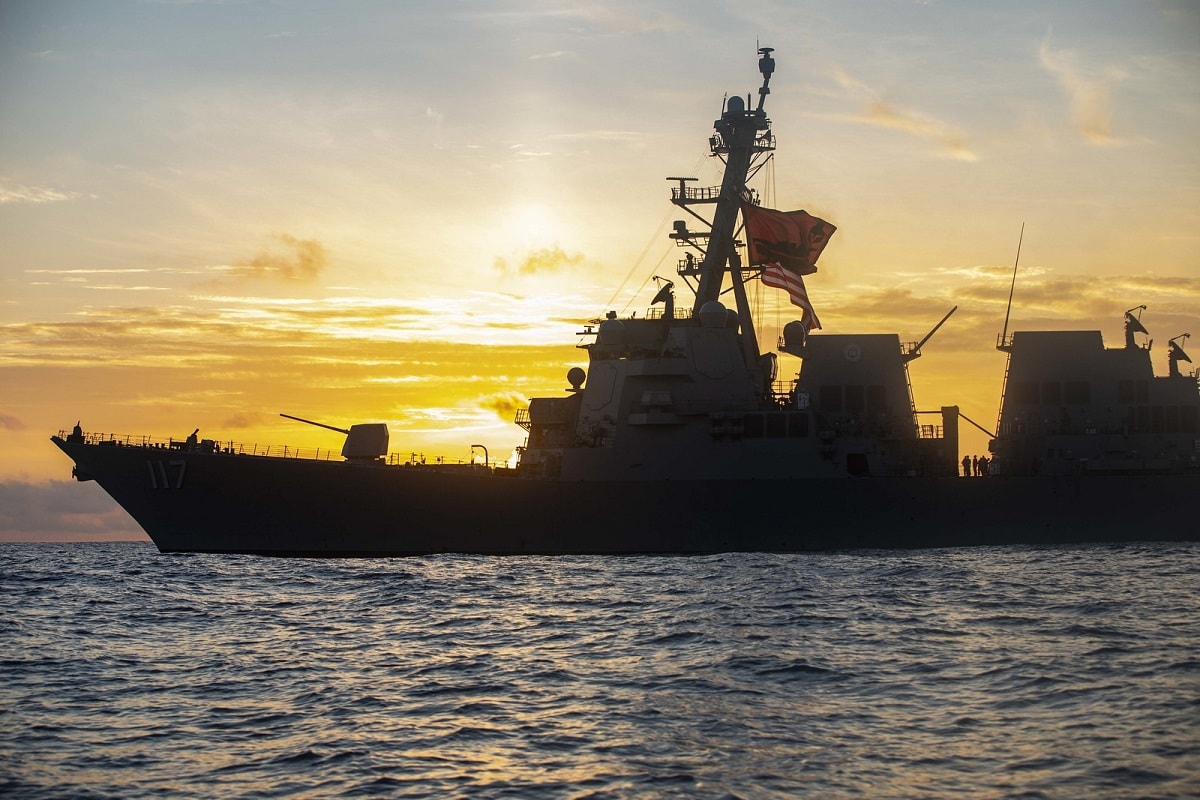China announced this week that it will demand that “foreign ships” report their course, call signs, and cargo before entering its territorial waters. What is especially noteworthy is that in making this bold statement, Beijing is attempting to strengthen its claim across the South China Sea.
Already China has laid claim to almost all of the 1.3 million square-mile neutral waters as its own sovereign territory. To bolster its claims, the Chinese military has built a number of bases on artificial islands even as the region is also claimed by Brunei, Malaysia, the Philippines, Taiwan, and Vietnam.
The new regulation, which is part of China’s Maritime Traffic Safety Law and goes into effect on Wednesday, was published in a notice last Friday by the nations’ Maritime Safety Administration. China claims it is to better ensure the safe passage of vessels carrying radioactive materials, bulk oils, chemicals, and a host of other supplies. Vessels are required to report the name, call sign, current position, next port of call and even estimated time of arrival to Chinese authorities.
Chinese experts told the state-run Global Times that the rollout of these new maritime regulations was a sign of stepped-up efforts to safeguard China’s national security, and to safeguard the region. Yet, instead of ensuring safety, the new rules are only expected to further increase tension if China strictly attempts to enforce them in the disputed waters of the South China Sea and the Taiwan Strait.
“The new regulation applies to China’s territorial waters—including the East China Sea, the South China Sea, and China’s islands and reefs—to regulate China’s management of those territorial waters,” Chinese commentator Song Zhongping told the South China Morning Post.
How Will China Enforce It?
It is still unclear how China plans to enforce the new regulations, but in its notice stated, “In case the vessel fails to report as required, the maritime administration will deal with it according to relevant laws, regulations, rules and provisions.”
The announcement didn’t specify or clarify what might entail a warning, a forceful expulsion or other necessary action, Newsweek reported. The United Nations Convention on the Law of the Sea (UNCLOS) states that territorial waters extend up to 12 nautical miles from the baseline of a coastal state. Additionally, foreign vessels, including both civilian and military, are permitted to conduct innocent passage through those waters. Those laws were ratified by China and recognized by the United States.
Additionally, China has called the recent transiting of the Taiwan Strait by two U.S. vessels – one U.S. Navy and another U.S. Coast Guard – to be a provocative move. The United States said it was a routine operation meant to maintain freedom of navigation around the world’s water ways.
“The frequent provocative moves [the passage of American vessels] are of a very bad nature and show the US is the biggest destroyer of peace and stability and the biggest maker of security risks across the Taiwan Strait”, Chinese defence ministry spokesman Tan Kefei said.
Peter Suciu is a Michigan-based writer who has contributed to more than four dozen magazines, newspapers and websites. He regularly writes about military small arms, and is the author of several books on military headgear including A Gallery of Military Headdress, which is available on Amazon.com.

